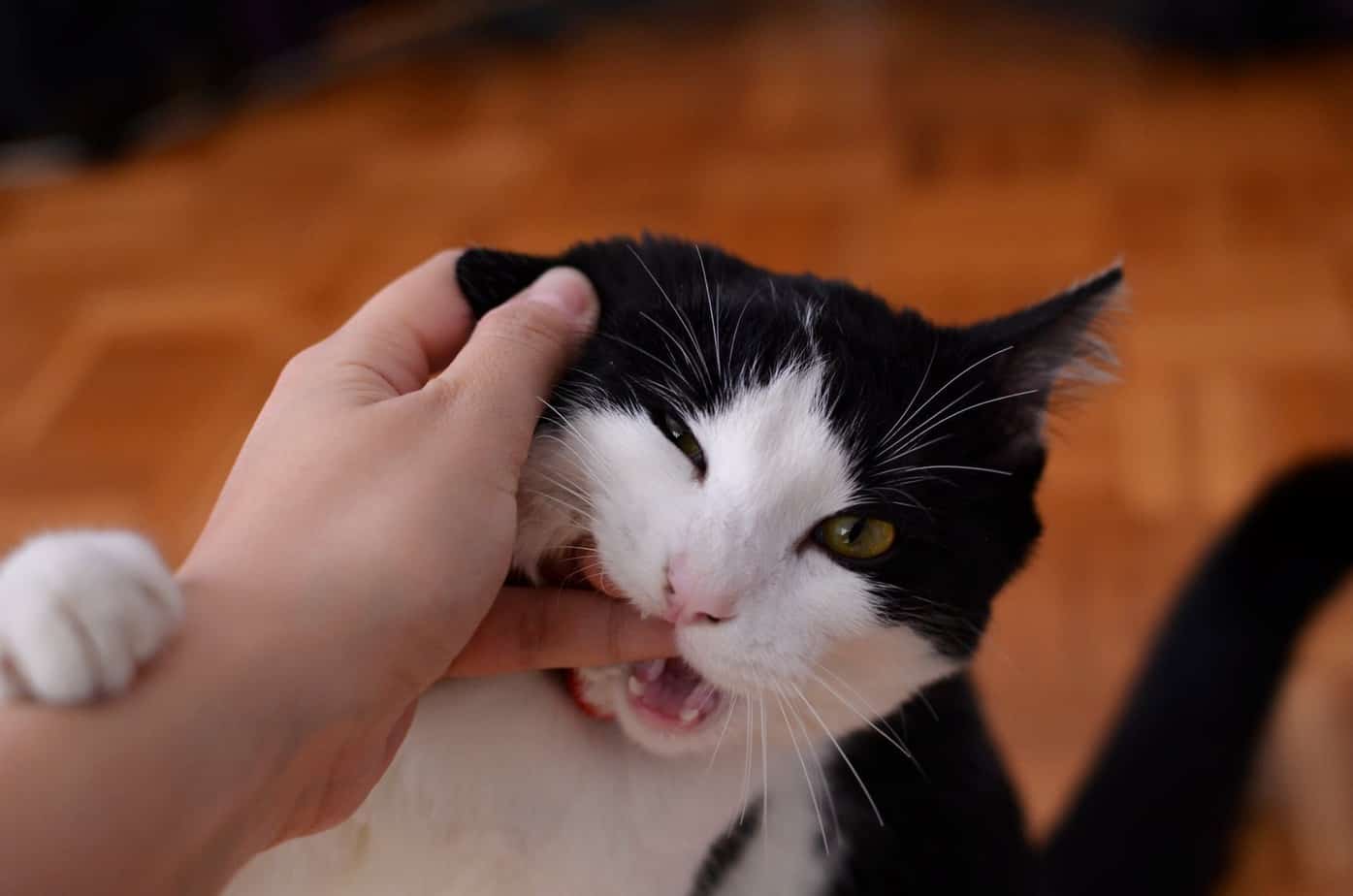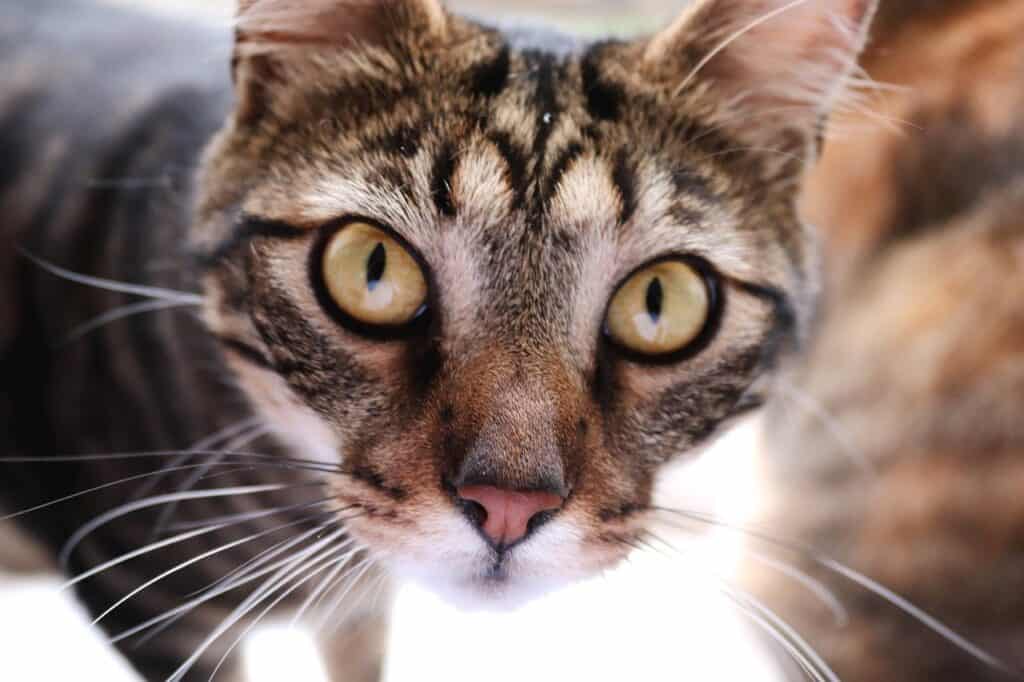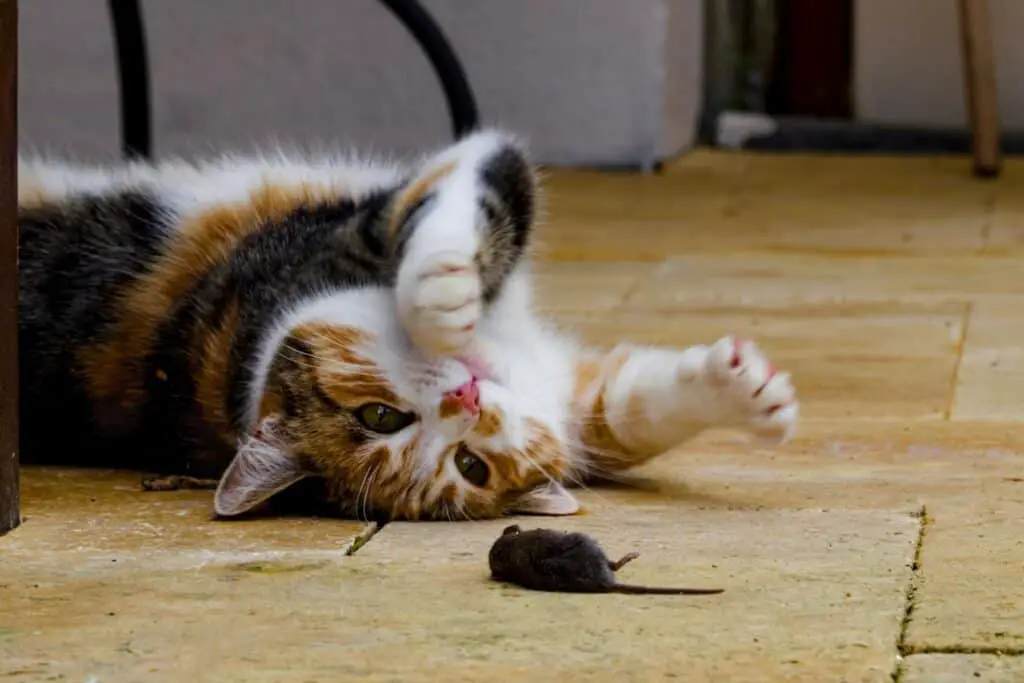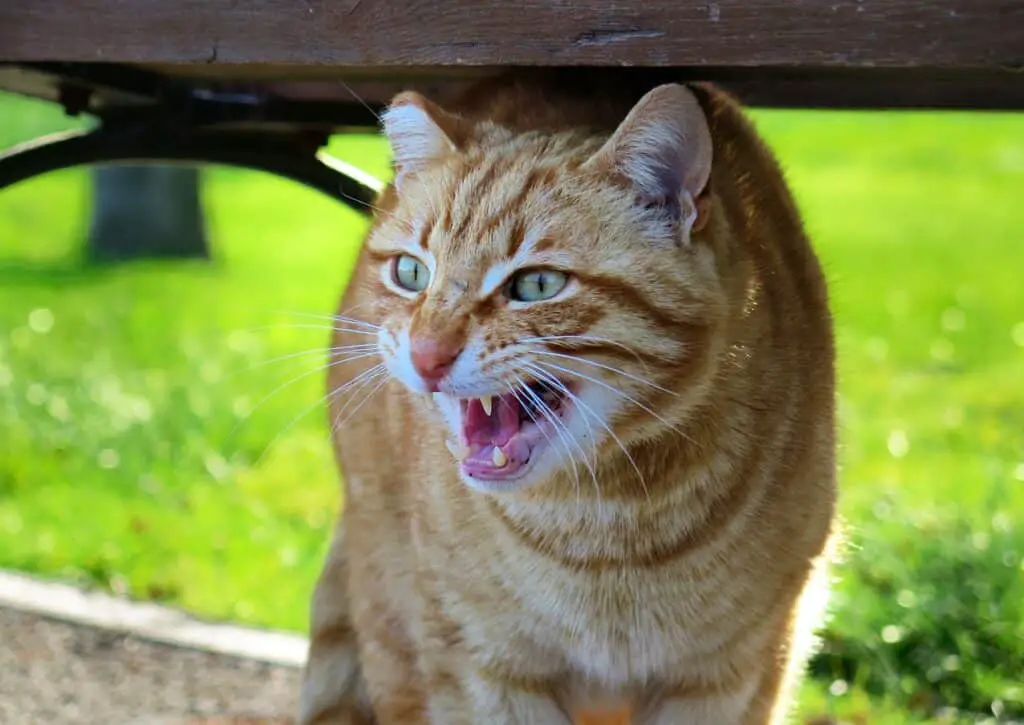If you’ve ever petted a cat before, you have likely encountered the following scenario. Your cat is lying in your lap and is purring away. You gently stroke your kitty, and then, seemingly without warning, your cat bites you. Leaving you wondering why she did that. Why do cats purr and then bite you?
Cats can bite seemingly without warning. Although it might seem sudden, they usually give off non-verbal warning sights that they want you to stop what you’re doing. These signs include a twitching tail, restlessness, or flat ears. Understanding a cat’s body language is key to avoid these bites.
It turns out cats do this for a reason, but they warn you first in almost all cases. Let’s dive in and find out why cats do this and how to avoid getting bitten by your cat when petting her.
Why do cats purr?
Most people think that cats only purr out of pleasure to show happiness and content.
As it turns out, cats purr for several reasons. As stated by Purina, and according to veterinarians such as Dr. Lorraine Kassarjian, from South Florida, cats purr when they are happy and content but also when fearful, stressed and anxious.
In those cases, purring serves as a mechanism that cats use to calm themselves down. When fearful or anxious, cats might bite to defend themselves.
Cats can purr from pleasure, for example, when you’re stroking them but then apparently, very sudden, bite you when they’ve had enough. Learning to understand why and recognize the signs will help you to avoid this.
Understanding cat communication
To understand this, we need to look into how cats communicate.
Cats are mysterious creatures, and for us humans, it’s often hard to make sense of their needs and their desires.
Apart from meowing, cats use many non-verbal, body language cues to communicate with us and each other.
Cat’s body language includes eye contact or the lack thereof, body posture, including tail, paws, and ears, and even by raising their fur.
Especially to their owners, cats make an effort to communicate and let us know what they like and don’t like. It is, therefore relatively uncommon that healthy cat lashes out without warning.
Looking for non-verbal signs while your cat is purring may help you to understand your cat’s state of mind at that moment.
Why do cats bite during play or petting?
Playful bites often happen during play or when you’re cat is really enjoying what you’re doing. These are not real bites but more nibbles and are a sign of affection. We call them love bites.
Love bites
Love bites are playful and painless bites to either show affection or to play. These are completely normal, and you will see cats doing this to each other as well.
In this situation, your cat is really enjoying the play, and they will show this by rubbing against your hand, maybe she’s purring, and give soft bites or nibbles. If she notices that the bites are too hard, she’ll often apologize by licking the spot that she just a bit.
Cats show that they enjoy your petting or playing by having their eyes closed and purring, even when giving you these soft nibbles.
In this case, there is nothing wrong but keep an eye out for signs of overstimulation.
Signs of overstimulation
Sometimes, during play or petting, cats may become overstimulated. This simply means that they’re no longer enjoying what you’re doing.
When this happens, and you don’t read the signs, a cat may bite you to stop you.
Cats can become overstimulated by rough play, playing for too long, or when you pet them too long or in the wrong place.
Often they will give off these, mostly non-verbal, warning signs; ignoring those signs can lead to cat bites.
Typical signs of overstimulation are:
- Cat fur begins to twitch
- Ears flickering or turning back/folding
- Restlessness
- Tail swinging hard or twitching
- Eyes getting large or pupils dilated
- Their body gets tenser
- Some cats may be vocal when they have had enough
- Arching of the back
Why do cats purr and then bite you?
When you notice those signs, it’s better to back off because your kitty is trying to tell you she had enough.
Some cats might give a warning bite first and grab and hold on to your hand but will not bite down. This often comes paired with a low-pitched meow and a stern look that says: “I’ve had enough; this is your last warning.”
How to avoid cat bites
As mentioned, cats rarely bite without warning us first, but those warning sights may be subtle. Here’s a couple of things you can do to avoid cat bites.
- Learn how to read the signs
- Observe your cat’s mood
- Interpret their body language
- Don’t be too rough when playing
- Find the spots they enjoy getting rubbed on and avoid overstimulation
- Give your cat toys to play with
Do cats need toys to play with?
It is a common misconception that only dogs need toys to play with. Cats also really enjoy toys, and if you have a cat that bites, giving them a toy might help.
Just like dogs, cats also need an outlet. Especially for young cats and kittens, having plenty of opportunities to play is important.
We often see that kittens are more prone to biting than older cats. Apart from their natural playfulness, this is caused by their teeth developing and growing. Just like with human babies, biting down on something comforts them.
Cats are also natural hunters, and while domestic cats don’t need to hunt for their food, that instinct is still baked into their being. Giving them toys to play with keeps them fit and simulates the hunt.
What to do if a cat bites you?
In their mouths, all felines carry many bacteria that can easily cause tissue infections in wounds.
Because cat’s teeth are tiny but can be razor-sharp, they inflict small but deep wounds. These wounds rapidly seal over, trapping bacteria inside and increasing the risk of infection.
For this reason, cat bites are considered to have a higher risk of infection than dog bites.
When you get bitten by a cat, wash immediately with water and soap. Preferably use a disinfecting soap.
For more severe bites, it’s always a good idea to see your doctor to avoid infection.
What to do if your cat bites too much?
If your cat bites too often and too hard, going beyond playful love bites, first try to find out what’s causing this behavior.
Your cat might be stressed out about something or feel anxious. Try to take away the stressor and see if your cat’s behavior changes. If you’re in a new environment, give your cat a chance to adjust to its new home and find a safe space to sit. Please don’t push it to do things it is not comfortable with.
In case there are no external factors and your cat displays aggressive behavior, teach her that this is not accepted. You can do this by mimicking their mother’s way of telling them off.
When kittens display unacceptable behavior, their mother grabs them in the neck skin. You can do this (softly) and speak to them in a stern voice, so it’s clear that they have crossed the line.
If you’re worried there might be something else; it’s always a good idea to consult your vet.




